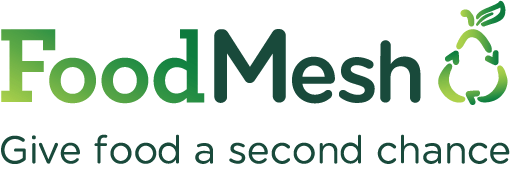An explainer on how we calculate our impact metrics and where we get our food waste and insecurity stats.

Our stats explained


Meals created
This is the edible food that is donated to charitable organizations through our Retail Food Recovery Program and the Marketplace, converted into meal-equivalent based on 544 grams serving size (as estimated by ReFed)
[Total edible food diverted in kg / 0.544]

Food rescued
This is the total weight of edible and inedible food that has been donated through the Retail Food Recovery Program and donated/sold through the Marketplace.

CO2e reduced
This is an estimate of the reduction of CO2 equivalents (CO2e) emissions that have occurred along the supply chain, as a result of food being donated through the Retail Food Recovery Program and surplus food donated/sold through the Marketplace instead of going to landfill.
To calculate it, we followed the following steps:
-
Using the ReFed GHG Factors, we determined a GHG factor for each type of food and destination
-
We calculated the emissions saved for each food recovery transaction, assuming the food would otherwise go to landfill [CO2 emissions generated by status quo (100% food waste going to landfill)] – [CO2 emissions generated by food waste going to best and highest use, i.e. donation, farm, compost]
-
Finally, we calculated a blended rate for each destination, based on our historical distribution of product type diverted through our programs. It gave us an average of 3.36kg CO2e saved per kg of food diverted to charity, 0.46kg CO2e saved per kg of food diverted to farm, and 0.75kg CO2e saved per kg of food diverted to compost.
-
We applied those blended conversion factors to the weight diverted [CO2e emissions saved = charity weight diverted * 3.36 + farm weight diverted * 0.46 + compost weight diverted *0.75 ].

Money saved
This amount reflects the value of food donated and sold through the Marketplace and donated through the Retail Food Recovery Program. How it is calculated is as follows:
For the Marketplace, the total value of the food sold and donated is calculated based on the product’s value (as stated by the supplier) and combined with the associated waste disposal cost, based on an estimate of $175/metric ton.
For the Retail Food Recovery Program, the estimated value of the edible food donated to charitable organizations is calculated based on Food Banks Canada’s valuation of $7.76/kg.
FoodMesh network members
This is the total number of organizations that are registered with one or more of our programs. They may be actively participating in the programs or on our back up list.

The problem we’re trying to address

of all food produced in Canada
is never consumed
Source: The Avoidable Crisis of Food Waste: Technical Report by Second Harvest (2024 update)

of that waste occurs
along the supply chain
Source: The Avoidable Crisis of Food Waste: Technical Report by Second Harvest (2024 update)

of that waste
is avoidable
Source: FoodMesh reporting that discovered that 50% of food that was previously being thrown away is still suitable for consumption

people in Canada
are food insecure
Source: Food insecurity and poverty in Canada by Community Food Centres Canada


